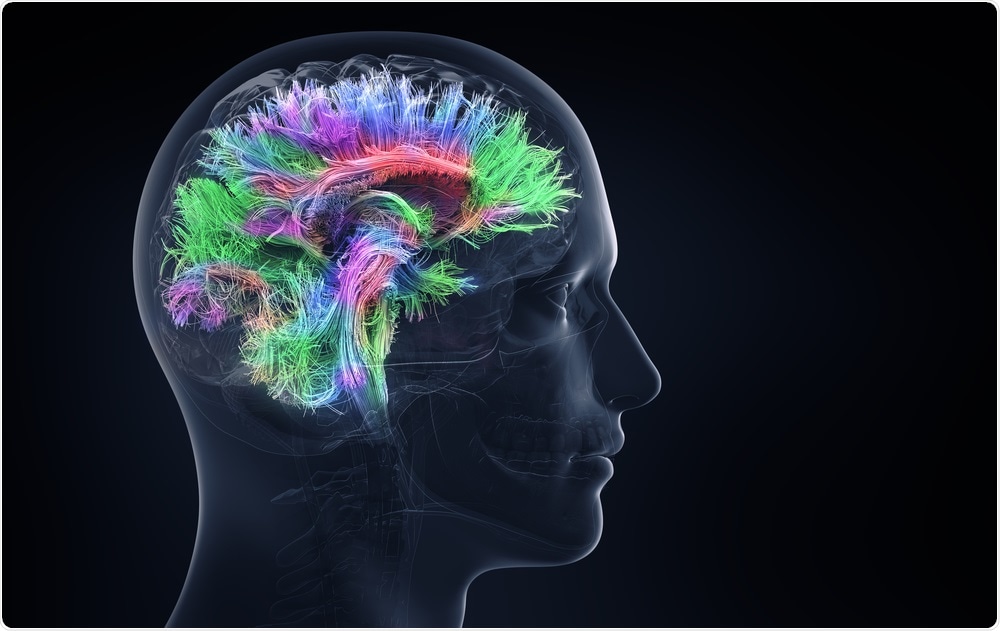An interview with Dr. Lloyd Tran from NeuroActiva, discussing the major barriers to Alzheimer’s research and development over the past 40 years, and how the IUFAA are working to overcome these challenges.
Why have so many Alzheimer’s drugs failed in the past 40 years?
It has now been 112 years since Dr. Alois Alzheimer first discovered amyloid plaques in the brain of Auguste Deter during an autopsy, and we still don’t have a treatment. Currently, there are several drugs on the market, but these are classed as symptom-modifying drugs, which cannot alter the course of the disease and are only effective for 3-6 months.

Adike | Shutterstock
There's a real need for a disease-modifying or therapeutic drug that can go to the heart of the problem, treat the patients, and help to prevent or kill the disease.
The reason we call it 40 years, despite Alzheimer’s being first reported 112 years ago, is because it wasn't until 1978 that the United States’ National Institute of Health (NIH) began funding research into Alzheimer's disease.
Back in the early 1970s, Alzheimer’s disease was considered a hopeless and untreatable condition. At that time, many doctors believed that this disease is a disease of aging, and thus, there was no point in researching the condition.
There are now several Alzheimer’s hypotheses under consideration. One of the most predominant hypotheses was proposed around 1992. This is called the amyloid cascade hypothesis and is characterized by the buildup of amyloid-beta in the brain, forming plaques. Therefore, a simple way to treat Alzheimer disease is to find a therapeutic drug that can remove, reduce, or mitigate the production of the amyloid beta in the brain.
There were other hypotheses, but the amyloid cascade hypothesis was quickly accepted and became the most popular concept in the field. This is why most of the candidate drugs for Alzheimer's disease focus on the removal of amyloid.
Unfortunately, we now know that Alzheimer’s disease is more complex, and can be caused by a number of pathologies, including traumatic brain injury, oxidative stress, diabetics, genetics, and others. To claim that the amyloid protein is the cause of Alzheimer is an oversimplification of the problem.
After recognizing the limitation of the amyloid hypothesis, researchers have now begun to look for other causes. Hopefully, from there, we can start to stratify patients and develop better therapeutics.
What is the International United Front Against Alzheimer's (IUFAA) and how is the initiative working to find a cure for Alzheimer’s disease?
The International United Front Against Alzheimer is an initiative started by the Alzheimer International Society, with the aim of forming global collaborations between industry and thought leaders in the Alzheimer’s field.
One of the main focus points for the IUFAA is accelerating the development of biomarkers to improve diagnostic techniques that help clinician recognize and diagnose patients in the early stage of Alzheimer's.
The Alzheimer International Society has also worked with the International Front Against Alzheimer's to raise around a billion dollars to fund and accelerate clinical trials. The hope is that we can bring forth a new treatment by 2025.

Peshkova | Shutterstock
Do you think we are close to developing an effective treatment for this condition?
I believe that we are closer than ever to an effective treatment for Alzheimer’s disease. Those 40 years of trial and error have increased our focus and led many pharmaceutical companies to search for the best treatments they can, rather than scatter their efforts in many areas.
To give you an idea about the global effort that is going into developing a treatment for Alzheimer’s; according to a publication by Dr. Jeff Cummings, there were 26 new drugs in 35 trials in phase three, and about 63 agents in 75 trials in phase 2 during 2018 alone.
Among them, the drugs that target amyloid beta only represent a small part, meaning that the majority of new drugs coming to market are targeting different methodologies, which is a great thing.
You are due to attend the Alzheimer Society International Congress in February 2019. Which topics will your talk cover and why?
A colleague and I serve as a program coach at the Alzheimer's Society International Congress with some major industry leaders.
Together, we decide on the theme of the Congress and the speakers we’d like to invite. This year, we will be focusing on what we have learned over the past 40 years in Alzheimer's drug failure and research; where we are now, where are we heading to, and the strategies that we need to develop to conquer the disease.
What does the next decade look like for Alzheimer’s research and development?
I think the next decade will be much more productive, much more focused, and within the next seven years, we will get a new treatment approved for Alzheimer’s disease.
I expect to see a lot of development in emerging fields such as neurogenetics and biomarkers, which will be used to develop new diagnostic tools that require a blood test rather than a CSF sample or PET scan, which are highly invasive.
We may also develop new informatics tools, deep data learning, and artificial intelligence that can be used by our clinicians to accelerate the use of treatments and diagnostics.
Hopefully, over the next 10 years, we will come up with a certain prevention method that would help many people, particularly to a population group that is at risk for Alzheimer’s disease. We hope to not only conquer the disease, but also be able to prevent, mitigate, and improve patients’ quality of life.
Where can readers find more information?
About Dr. Lloyd Tran
 Dr. Tran is a scientist with 25 years’ experience in pharmaceutical research & development, regulatory affairs, and business management.
Dr. Tran is a scientist with 25 years’ experience in pharmaceutical research & development, regulatory affairs, and business management.
He is an inventor with a number of patents in controlled release therapeutics and a new drug for the treatment of neurological diseases.
Previously, Lloyd was employed as a research scientist at G.D. Searle, Monsanto Corporation, and was the director of product development at Biomed Corporation.
Currently, he serves as the chairman of NeuroActiva, Inc. a clinical stage biopharmaceutical company that has completed the Phase 2A proof of safety and efficacy of a new drug for the treatment of Alzheimer’s disease.
He also serves as a program chair of the Alzheimer International Society. Lloyd graduated with a B.Sc. (Honours) and completed a Ph.D. in medicinal chemistry at University of Otago and Victoria University of Wellington University.